How New Plymouth gardener Carl Freeman makes a living from his 1000sqm vegetable garden
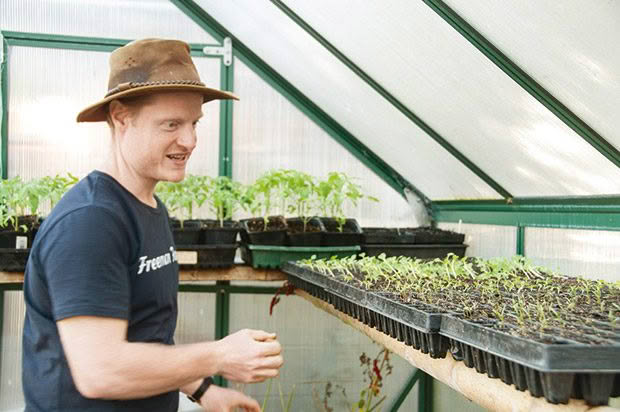
On a block this small, this New Plymouth gardener only grows the most efficient vegetables for his bottom line.
Words: Sheryn Dean
Who: Carl Freeman, Freeman Farms
Where: New Plymouth
What: small-scale market gardener
Carl Freeman is living the good life on the smallest farm you’ll find, just 1000m² in suburbia. He works 30 hours a week, growing 25 different vegetables in 50 beds. His target is to produce and sell $1000 worth of crops per week.
Deduct costs, and he returns an adequate income. He’s also his own boss with a good life-work balance, and he’s the primary caregiver to his four-year-old son, River.
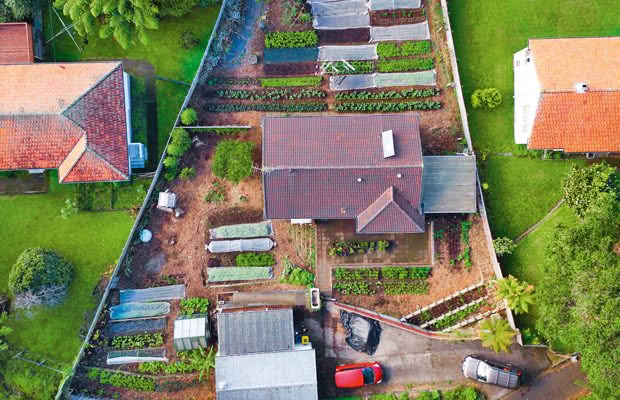
Carl’s farm in urban New Plymouth is all garden. The mower is now used to make mulch.
Carl fell in love with organic gardening while working in a 2ha market garden in Australia. He wanted to try small-scale farming himself and took inspiration from YouTube market gardening stars such as Curtis Stone, J.M. Fortier, Richard Perkins, and Never Sink Farm.
He and his wife Kati bought their New Plymouth house online, sight unseen, while expecting their son. “You can see a lot with Google.”
The lawn and every available inch of the sloping quarter-acre section was immediately turned into vegetable beds. The lawnmower now serves as a mulcher.
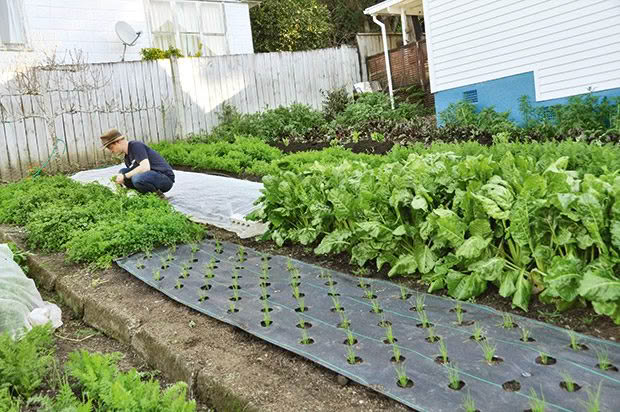
All 50 beds are the same size so covers and weed mat fit, no matter where required.
His systems are designed to be as efficient as possible. For example, all the beds are a standard size so the same covers and weed mat work wherever required in the garden. Carl can easily calculate exactly how many seedlings to plant, and the expected return from each bed.
His custom-made ‘Freeman rake’ marks his planting lines, and dibbers poke holes the exact size of his seedling plugs.
Carl says some crops aren’t economical on a small scale. Potatoes, for instance, are only grown to feed the family. The advantage of vegetables is the short lead-in time and quick rotation. It helps to reduce the risk of crop failure; that was about 25 percent in the beginning, says Carl.
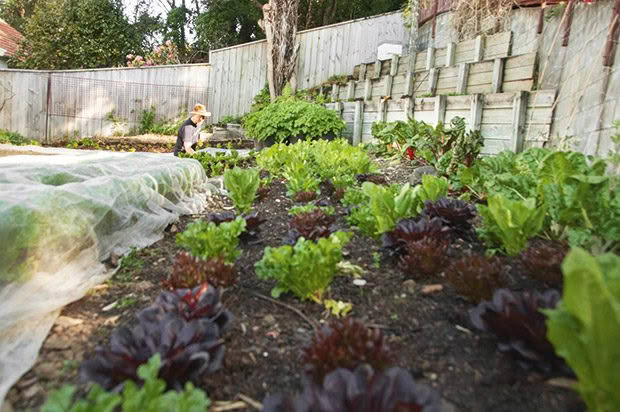
Carl Freeman aims to sell $1000 of spray-free vegetables each week.
The failure rate is decreasing as he gains experience, and the soil improves. That still leaves the challenge of having the right crop, ready at the right time, to meet market demand.
As a direct-to-market seller, Carl has minimal regulatory requirements, which is important to him. It means the business is the right mix of practical gardening, planning, and administration. The Taranaki Farmers’ Market each Sunday gives him customer interaction and inspiration. Carl also sells pre-ordered vegetable boxes to locals who collect them from him mid-week.
It means he spreads the harvesting workload across the week, rather than everything needing to be sold on one day. He hopes this developing sales avenue will be his main income stream in the future.
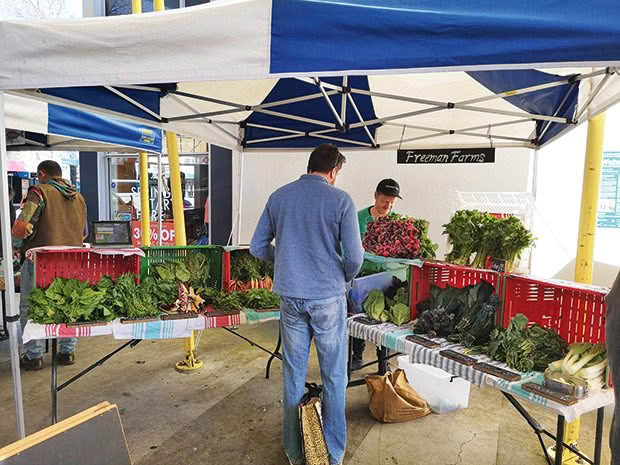
“Treat it like a business or a sport. Create systems and constantly improve the key performance indicators you set yourself. Also, invest in soil health from the start – buy lots of compost.”
MORE HERE:
Love this story? Subscribe now!
 This article first appeared in NZ Lifestyle Block Magazine.
This article first appeared in NZ Lifestyle Block Magazine.
